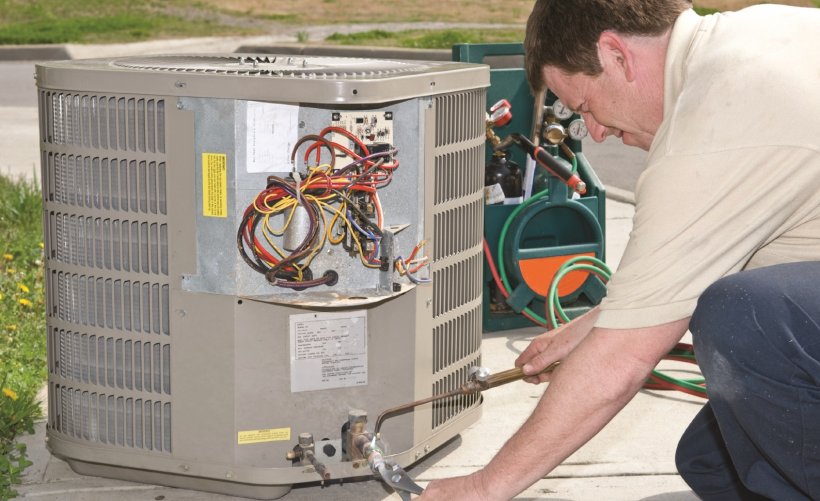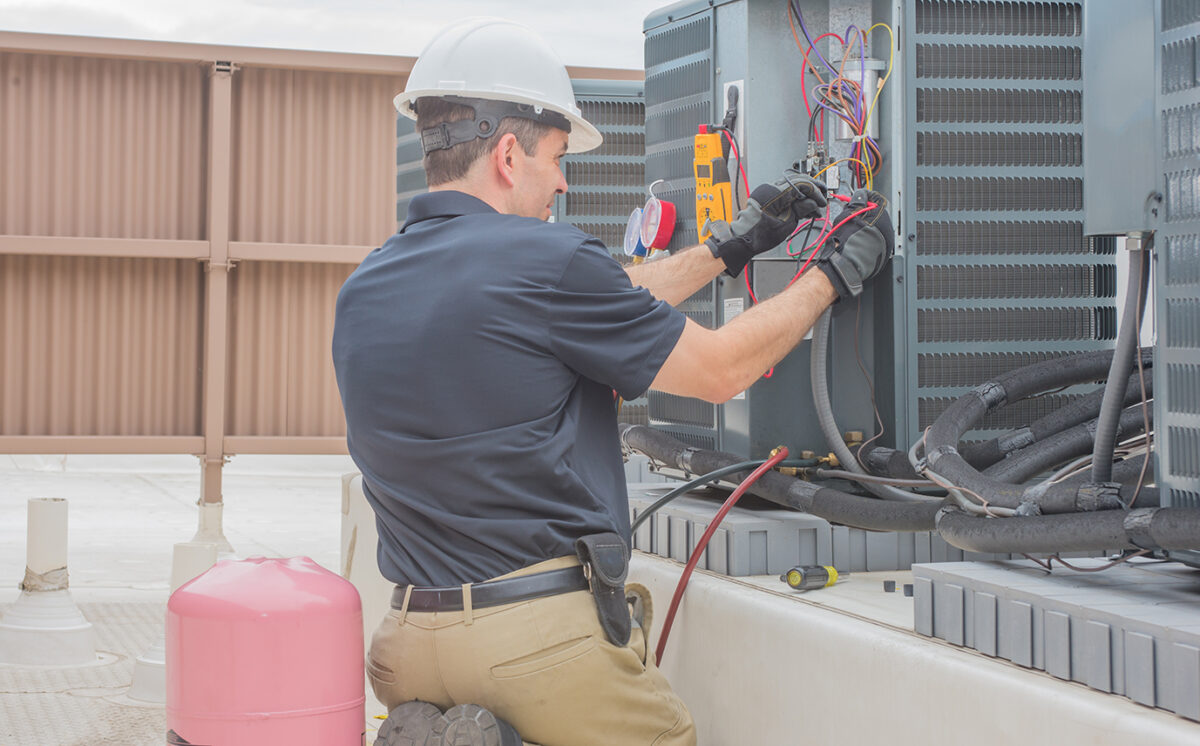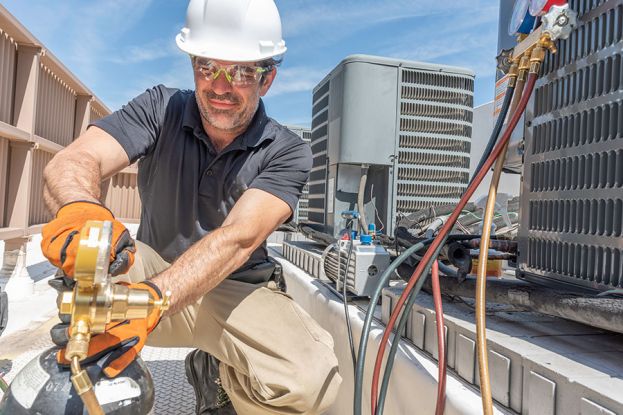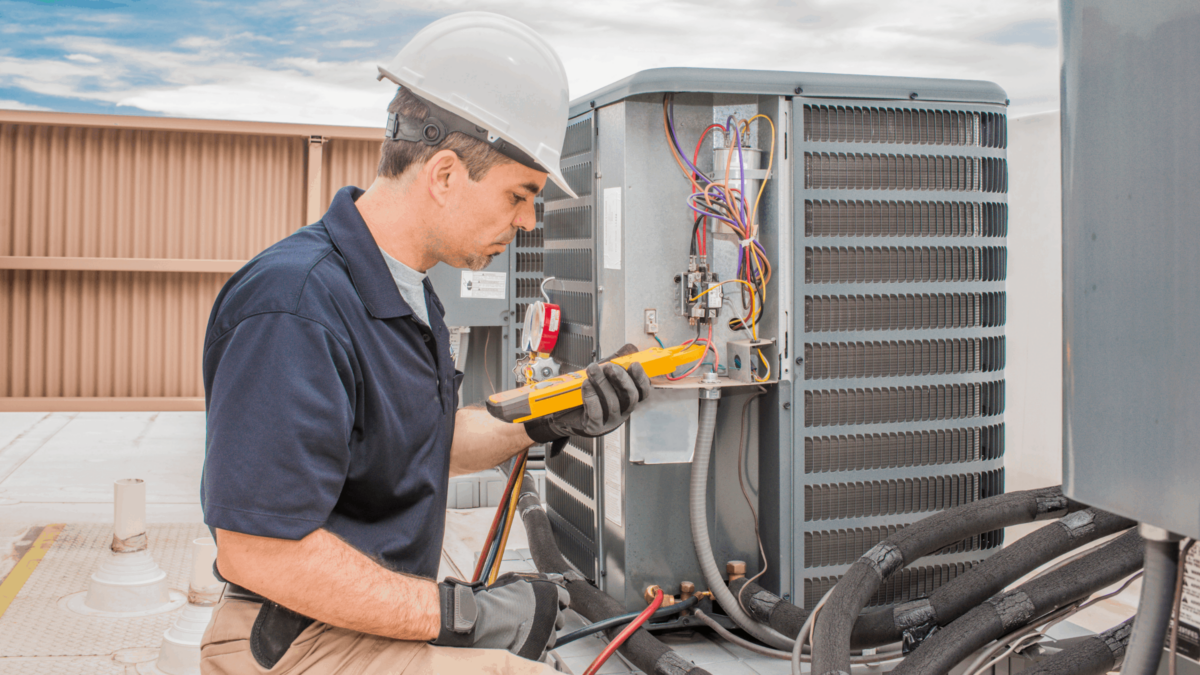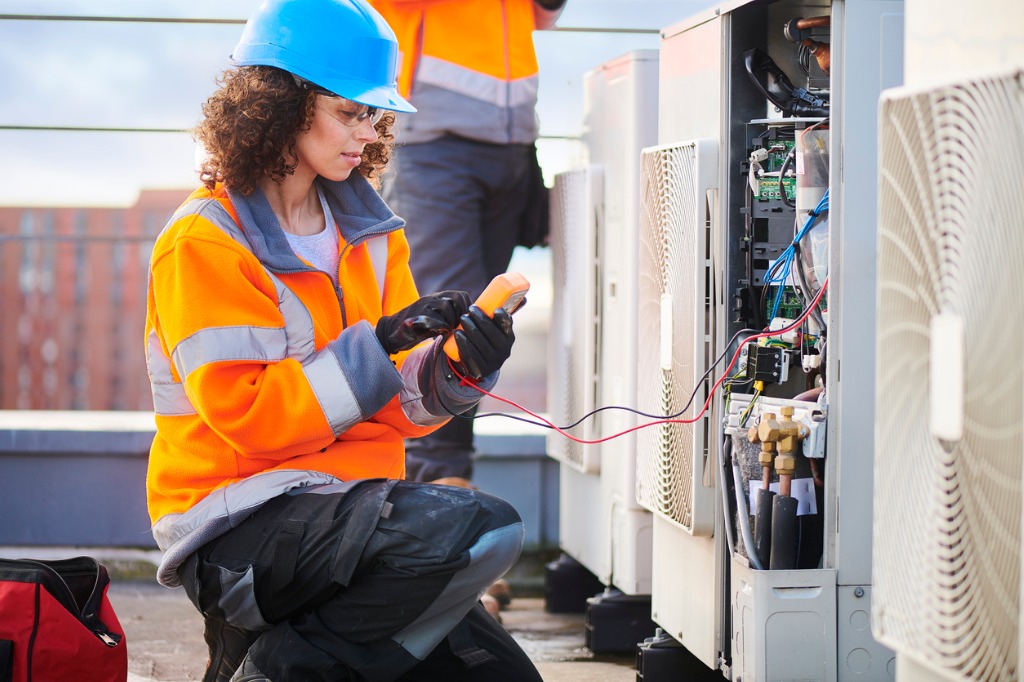HVAC Safety Tips For Every HVAC Contractor
As an HVAC contractor, you know that safety is paramount on every job site. Here are some safety tips to keep in mind when working on HVAC systems:
1. Always wear the proper safety gear when working on or around HVAC systems. This includes gloves, safety glasses, and hearing protection.
2. Be aware of your surroundings when working on or around HVAC systems. Watch out for moving parts, sharp edges, and hot surfaces.
3. Use caution when working with chemicals and other hazardous materials used in HVAC systems. Follow the manufacturer’s instructions carefully and always wear the appropriate protective gear.
4. Never try to repair or service an HVAC system without the proper training and experience. If you don’t know what you’re doing, you could seriously injure yourself or others.
5. Always follow the manufacturer’s instructions when working on HVAC systems. These instructions are there for a reason – to keep you and others safe. By following these simple safety tips, you can help ensure a safe and successful job every time.
Review Your System Regularly
If you want your computer to stay in good shape, you need to review your system regularly. Checking for updates and making sure your security settings are where they need to be should be a regular part of your routine. You also need to keep an eye on your storage. If you have a lot of files, photos, and videos, you might want to invest in an external hard drive. And, if you have sensitive information, you should make sure you’re backing it up regularly. Taking these steps will help you avoid problems down the road. And, if you do run into trouble, you’ll be glad you took the time to review your system regularly.
Check for Proper Ventilation and Insulation
A house is a system, and all systems need proper ventilation and insulation in order to function properly. The same is true for your home. In order for your home to maintain a comfortable temperature and to prevent moisture and mold problems, you need to make sure that it is properly ventilated and insulated. There are a few things that you can do to make sure that your home is properly ventilated and insulated.
First, you need to check the weatherstripping around your doors and windows. Weatherstripping is what keeps the cold air out in the winter and the hot air out in the summer. If your weatherstripping is old or damaged, it will need to be replaced.
Second, you need to check your insulation. Insulation is what keeps the heat in your home in the winter and the cool air in your home in the summer. If your insulation is old or damaged, it will need to be replaced.
Third, you need to check your vents. Vents are what allow the air to circulate throughout your home. If your vents are blocked, the air will not be able to circulate properly and your home will not be properly ventilated.
Fourth, you need to check your ductwork. Ductwork is what carries the air from your vents to the rooms in your home. If your ductwork is old or damaged, it will need to be replaced.
Finally, you need to check your furnace and air conditioner. These are your home’s heating and cooling systems. If they are not working properly, your home will not be properly heated or cooled. By taking the time to check these things, you can be sure that your home is properly ventilated and insulated. This will help you to save money on your energy bills and to prevent moisture and mold problems.
Test Your Equipment
It’s always a good idea to test your equipment before setting out on a diving trip. That way, you can be sure that everything is in good working order and that you’ll be able to focus on enjoying the dives rather than dealing with problems. There are a few key things to test. Firstly, check that your dive computer is working properly. Make sure all the buttons are responsive and that the screen is displaying information correctly. If you’re using a dive watch, check that the bezel is rotating smoothly and that the hands are ticking over correctly. Secondly, take a close look at your fins. Check for any cracks or splits in the material, and make sure that the blades are securely attached. If your fins have straps, make sure that they’re not too loose or too tight.
Thirdly, inspect your dive mask. Look for any cracks or scratches in the lens, and make sure that the skirt is in good condition. If you’re using a prescription mask, check that the lenses are correctly positioned.
Fourth, test your regulator by breathing from it under water. Check that the diaphragm is moving freely and that there are no leaks. If you’re using an octopus regulator, also check that it’s working properly. Finally, take a good look at your dive cylinder. Check the valve for any leaks, and make sure that the pressure gauge is working correctly. If you’re using a steel cylinder, also check the hydrostatic valve. By taking the time to test your equipment before diving, you can be sure that you’re well prepared for a safe and enjoyable trip.

